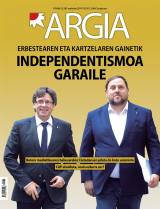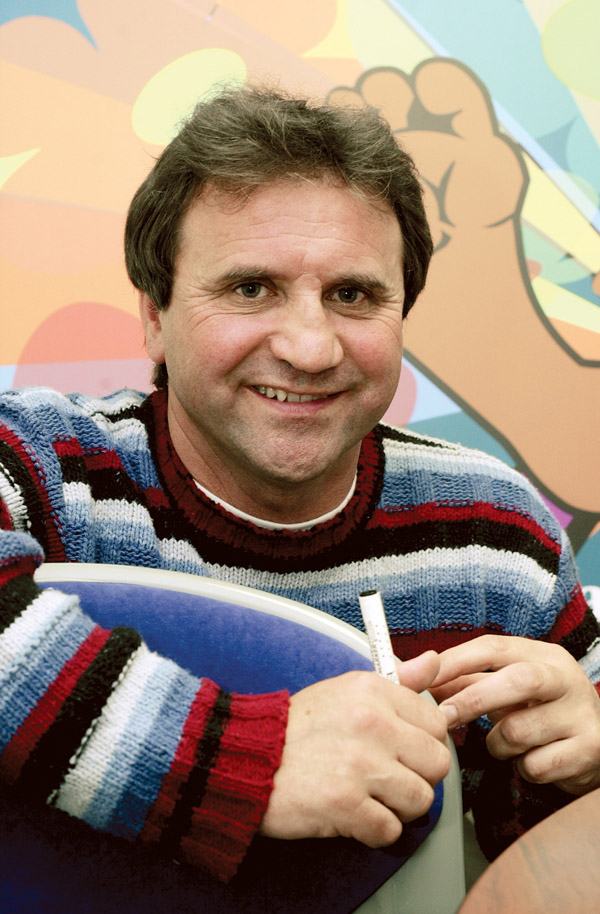"We have to really believe that another way of learning gives results."
- The Hik Hasi Basque Education Project has published a "pedagogical and ethical soil to ensure quality education", the result of a joint reflection of several experts over a year. They have gathered ten keys to improving education and, with that excuse, they have held a round table in Mondragon Unibertsitatea. These are some of the interesting points that the program has given since it was released.

Hik Hasi’s proposal is based on three pillars: education must be financed and publicly intervened, each center must be autonomous and collaboration between educational agents, involvement of local government and participation of other people’s agents is essential. For further information, the debate was attended by Ane Sofedo (University of Baiona), Nerea Alzola (Huhezi), Nora Salbotx (University of Navarra) and Xabier Sarasua (Hik Hasi).
Lack of recognition of Child Education
“From the clinical and pedagogical point of view, the sooner the education is given to the child becomes more fundamental. That is, age 0-3 is more important than section 8-14, and what to say about everything that can happen to you in college, because what happens to you when you're young influences more. In this sense, the work of the educators who are in the children's school is much more important than that of those who are in the university. In society, on the other hand, the opposite prevails: working conditions are worse and their recognition is much lower,” says Sofedo.
Ane Sofedo: “The work of educators who are in children’s school is much more important than that of university teachers. However, they have worse working conditions and much less recognition.”
Languages studied without economic purposes
The report points out that students must turn the classes into multilingual Basque. Salbotx has in mind the Basque Country, which is open to all kinds of cultures: “Learning languages is important, but not to respond to the knowledge of the languages that our globalized and neoliberal society demands and imposes (not because we can motivate capital or relocate our company in the future), but to meet the individual needs and the development of the person; to relate, to communicate. That is why this language does not have to be English, German or Chinese, it can be the minority language of my neighbour. In Finland, for example, they have a flexible approach: when immigrants come from anywhere, they ask the new student what their mother tongue is, and if they have three or four children who have it, they will send a teacher of that language to school. They start from the achievement of a good level of competence in the mother tongue and in one’s own language, as well as from the assessment of transitions that occur from one to the other”.
What type of teacher does the student want?
According to Alzola, the good teacher needs “the ability to question himself and the outside; the ability to awaken divergent thinking and ask questions. It is a good teacher who gives guidance so that each person can get to know each other and develop and help form the human community.” It also considers the attitude of the teaching staff essential, “believing that we can make changes”.
Salbotx adds that it is also useful to ask students about themselves. He asked his university students, and for them he is a good teacher, “he who feels the passion for his work and is able to get excited with him, because so he will be able to motivate others.” The students who are children have also been asked, and Salbotx has brought a list: whoever wants to be a teacher “will have to know the names of the children, will have to rebuke us periodically, write poetry, will have to tell some of our secrets to the parents, will have to dance and sing, will have to know how to do nice jobs and tell stories, encourage the children who are sad, help the children to relax day and will have to talk to them.” At first glance, humble requests, “but if we analyse them individually, it seems to me that they are enormously profound.”
Nora Salbotx: "Language learning is important, but not to serve our globalized and neoliberal society (not through the motivation of capitals), but to respond to the needs and development of individuals"
Let the wind get in school
The idea of popular educators is also at the heart of Hik Hasi’s proposal. In Salbotx’s words, “there is a society around the school, there is a way to see the world, there are linguistic practices… There is a lot of knowledge, but all that knowledge is taught a part in school, who says what is to be taught? We will throw the walls of the schools and let it enter the wind.” For Sofedo, “this is going to come from the paradigm shift. School isn't the only center: it's evidence, but it's also revolutionary, because for example, we see a child who doesn't go to school and we think he's not going to study. But if learning is what we do for ourselves, you cannot not learn. And we learn in many ways, at school and outside of it. We have to integrate classes into life, and we will better represent what an educational community is.”
Given the educational system we
have today, is such a proposal feasible? According to Sarasua, the key is trust, “if we do not have confidence, we will not teach others to educate in trust. Sometimes we find it difficult to get out of the Confort situation we find ourselves in, we strengthen ourselves in our trenches and the way is to talk, discuss and trust to break the inertia and move forward. Our proposal is not an articulated law, but a direction.”
“Schools outside the education system are emerging as mushrooms, and that means something,” Sofedo stressed. As with the ikastolas, I am at the gates of a second lap, at the gates of reflection and new things. All of this we should structure because there is will, interest and discomfort.” Sarasua has recalled that these most innovative schools have a place in the educational system in other countries, “but not here, and it is up to the system to open them and adopt that diversity”.
However, an audience listener sees the paradigm shift in education as difficult. How do we educate ourselves in other competencies if we have to prepare students for tests such as Selectivity or Low? “They sell us that we have to prepare the students for that ghost, but in the face of the limitations and obstacles that the system places us, if we cannot break, we have to learn to deceive ourselves at least: if we have to pass, we will pass, but the Selectivity can be prepared in a few months and for all the time before we will give other things. Most people who work in free schools then go to college or sooner jump to high school, for what they prepare at a certain time and it’s already there,” Sofedo said.
Which students are more prepared?
The public, however, is not so clear. In their opinion, students who have been trained in traditional education will have more capacity to assimilate content from Selectivity than those who have acquired other competences and values. Sofedo does not agree: “I’m not so sure the former are more skilled. We really have to believe that another way of learning yields results and that the one who has grown up in competencies may have more capacity, even to make that same enemy. The first may have more dexterity in these kinds of tests, because it is known to you, but other capabilities can be turned off, which can also be important to face these kinds of tests. And after all, we have to make a real commitment: let us suppose that the student who has received traditional education is more able to pass the test, but at what price? How many important things have you left in the way? We have to decide what attitude we want to take to life and make a choice for it.”
The last question that has been asked among the listeners about alternative classes has been that of Patxi López. Yes, they are based on a different education, “but they are not free, and although they agree with the ideas, they often become elitist.” Teniedo intervenes: “I would also like that school model to be for everyone and I think the key is that precisely those who create these projects have that same goal, because they have the public will, they have no will to create an elite; there is no profit motive and although it is expensive for families, those who work there earn very little.”
Hezkuntza hobetzeko hamar gako zerrendatzen dituen proposamena egin du Hik Hasi egitasmo pedagogikoak, urtebetez hainbat aditurekin batera burututako gogoetaren ondorio. "Kalitatezko hezkuntza bermatzeko zoru pedagogiko eta etikoa: Hezkuntza hobetzeko gakoak"... [+]

























